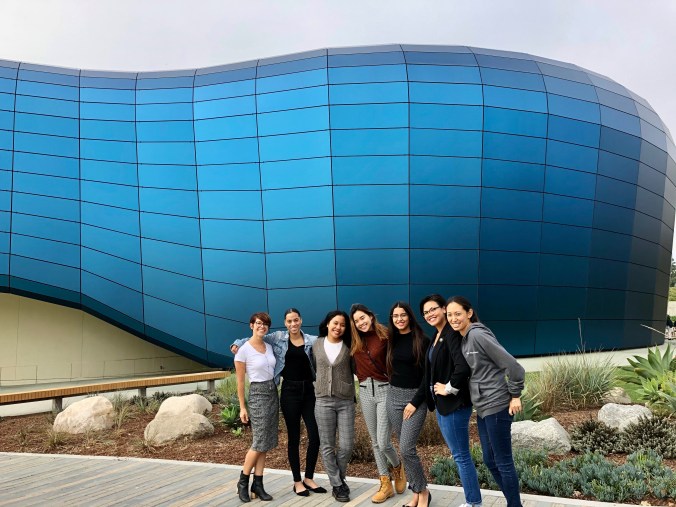The Child Language Interactions and Memory (CLIaM) research lab focuses broadly on the intersection of language and cognitive development, learning through social-interactive processes, and family digital technology practices in young children during informal learning. Our multi-pronged research agenda utilizes both qualitative and quantitative approaches and integrates interdisciplinary theory from developmental psychology, education and linguistics to address issues facing children, families, and society today.
Our current research project explores the intersection of technology use and family interactions during informal science learning through partnership with the Aquarium of the Pacific, examining the ways in which technology can be harnessed to promote child informal science learning during family interactions. Dr. Kelly’s research also investigates the development and origins of child conversational and narrative skills and explores socio-emotional and cultural factors that contribute to children’s development of linguistic skills.
Dr. Kelly’s research on narrative story completion methodologies has received national recognition from the American Educational Research Association Division E. Her edited volume, Narrative Story Completion Methodologies: Research Approaches across the Lifespan, is forthcoming from Oxford University Press.

Our current project is a multi-year program of inquiry, in partnership with Long Beach Aquarium of the Pacific and Long Beach Unified School District. The project is designed to deepen our understanding of family smartphone practices while engaged in informal science learning and consider implications of family practices as they may connect with classroom learning, as well as help us to explore the connections that can be made between literacies in school, at home, and in informal learning spaces. The pilot phase characterized family practices relating to smartphone and digital photography use during informal science learning and described variation in the quantity and quality of parent-child conversations as a function of smartphone presence and degree of use.
The second phase determines whether and how families talk about digital photos during and after an aquarium visit and assess the potential of digital photos to enhance family science literacy practices during an aquarium visit and children’s recall of science-related information after an aquarium visit.
A pilot study in LBUSD classrooms explores whether and how instruction focused on related content (scientific literacies and digital literacies) connects to the ways families talk (and write) about their aquarium visit, before, during and after the visit.
Our work has been published in the Social Sciences Journal, the Journal of Technology in Behavioral Science, Frontiers in Psychology, and Computers in Human Behavior Reports.